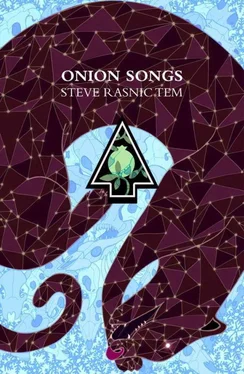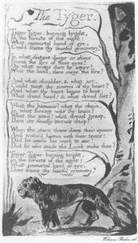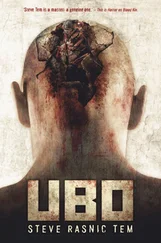36. behaviors
After she was gone John let things go. Dirty dishes gathered in the sink, half-eaten food waited on the table, garbage stood in the corner, all murmuring their condolences.
It was an attempt, he realized, to stay in the moment: if he kept the remnants of their last meal on the table perhaps the next—the cleaning her out of his life—might not occur.
But the flies came and the stench, for stalled time eventually rots, and cannot be kept.
37. dreams
After John’s wife died he often found himself looking at very young women. Other people might find this perverse but he himself did not think it was. He supposed it did not embarrass him because he and his wife had never had a daughter.
In any case, he wasn’t sure if there was anything sexual in his interest. His appeared to be more of an aesthetic concern. There was a freshness in them, a lack of cynicism, or so he thought. He was self-aware enough to know this was an idealistic view, but no matter. It made him feel better just to see all these beautiful young women about in the world.
38. behaviors
For two years after his wife died John was but sporadically employed, taking odd jobs for odd money. Stocking shelves, inventory, yard work, but in the spring it was painting, which he enjoyed. So time consuming to make it right, but he always felt the world had been renewed with a reservoir of completely fresh moments.
Despite his advancing years he was always the new guy on these jobs. And, after an initial display of deference, his co-workers must have decided he knew nothing, and treated him like a kid.
That was how he wanted it. If he could still take advice from a 20-year-old the world might still be a well of possibility.
39. events
John had managed to avoid crime most of his life, until he was forty, when a series of break-ins left him without a TV or stereo. He replaced them immediately, left the new boxes out in his trash, a signal to the thief that he was ripe for the picking again.
This relationship lasted off and on for over a year, with the usual swings of attention and inattention, disappointment and anticipation that pester most relationships. Not a lover exactly, but John’s own private Santa Claus, a treat always left out to please and bring an unexpected chuckle.
40. dreams
When looking through old photo albums he’d accumulated during his lifetime, John was annoyed by how many photographs displayed people he did not recognize, places he was sure he’d never been, or even images that appeared to make no sense whatsoever. He knew it was possible to take an unrecognizable photograph—his photography skills had always been less than average—but what would possess him to display such photographs? Obviously they had had some meaning for him at some time, but that meaning was long gone.
Which was the most distressing thing, he supposed. How meaning could just slip away, seemingly at random, almost as fast as you might acquire it.
Perhaps his dead wife had taken the photos. But why hadn’t he noticed them before? He hadn’t been paying attention. He had lost his memory of these photos. Little by little he had lost meaning. He had lost his wife.
41. philosophies
He’d discovered that when life grew dull he could experiment with being his opposite. A teetotaller, he became a heavy drinker. Quiet around women, he became the ultimate charmer. Passive and reticent, he became forceful and brave. He might maintain the transformation only for a few days, sometimes only for a few hours. But each time he managed to retain at least a ghost of the person he’d pretended to be. For certainly these were all people he could have been, given the right circumstances. Chance could make you dull and fearful, or interested and competent. He believed we should have more control than that over our personalities, but so often we did not. Luck of the draw. Sometimes late at night he could hear the faint sound of the world shuffling, reshuffling, riffling the deck.
42. behaviors
John had a sister who would forever define the best and worst of the female sex for him. A year younger, she had always been more mature. When they were teenagers she let him watch her get dressed so that “He would know the order that a woman’s clothes went on.” It was another year before he fully understood what she had been talking about.
They drew apart in their middle years. He never forgave her for taking up smoking. She drank too much, dressed immodestly. The last time he saw her was after his wife died and following the end of her third marriage, and it shocked him how much she looked like their mother.
It was then he knew he could never marry again.
43. philosophies
Only recently had John realized that people did not fully appreciate the importance of individual moments. A stumble over a stone, a chance encounter with a beautiful woman, and your life was changed forever. And what is that glint in the passing automobile’s bumper—the reflection of your long dead son, his heart stopped by a fall, now singing into the last sharp reflection of the day?
44. behaviors
Most of his adult life John had worked in an office. Originally it had been the best he could get right out of college with a good education but no special skills. In the years that followed it was the thing he knew, and when a company had to plug someone into a position his was the plug that fit.
Primarily he moved papers around, office to office, company to client, company to government, and back again. He now has very few memories of that period of his work life.
For paper destroys time. That can be wonderful in a novel, but not so wonderful when you’re trying to recall, and store away, the best part of your day.
45. behaviors
There were very few things John felt ashamed of. But all of them had to do with women. Things he’d done when he was much younger, of course. They’d tease him on and then they’d try to turn him off.
No one knew himself less than a young man in his early twenties. Unable to see past his own need. So many shameful incidents, so many explosions of bad behavior: he’d take them back if he could. He spent many a late night worrying over the sins of a younger self.
If his son had lived, he would have told him. He would have replayed every ill-behaved moment. And his boy, he would have had to listen.
46. events
John saw the man three times in as many months. A hard face, collar pulled up as high as it would go. Oily eyes. He never knew such eyes were possible, as if the tear ducts issued a yellow oil that glazed the eyes. The first time he saw him the man was watching some small boys play ball at the edge of the park, examining every move as if he were a major league scout. The second time John had brushed against him as he came out of the hardware store. Metallic things jangled under the coat—John checked his body for injury—he could have sworn he felt his skin tear. The third time the man had appeared on a distant corner, bent to pet a cat, and snapped its neck with a blur of motion. John had run to the corner but there was no sign of the man or the cat.
He searched the papers for months for news of missing children and found nothing. He always believed it was the wrong papers, or the wrong time.
47. dreams
John was hardly suicidal, but sometimes in the dentist’s chair he imagined himself succumbing to some medication mishap and discovered he didn’t feel badly about that. He felt such vulnerability leaning back with his mouth open, metal instruments protruding like utensils from a serving bowl. Halfway to death already, or so it seemed: the only thing between him and death now an allergy or a sensitivity or some accidental lethal combination. That’s what death frequently was, anyway, an accidentally lethal combination of moments. You could worry about it all your life or you could accept it, even welcome this universe of accidental possibility.
Читать дальше












